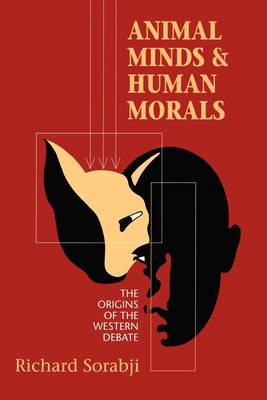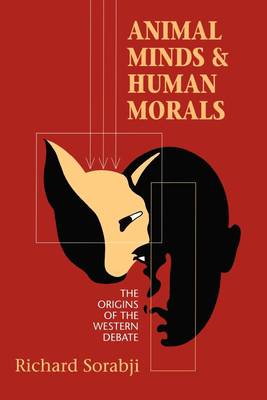
- Afhalen na 1 uur in een winkel met voorraad
- Gratis thuislevering in België vanaf € 30
- Ruim aanbod met 7 miljoen producten
- Afhalen na 1 uur in een winkel met voorraad
- Gratis thuislevering in België vanaf € 30
- Ruim aanbod met 7 miljoen producten
Omschrijving
"They don't have syntax, so we can eat them." According to Richard Sorabji, this conclusion attributed to the Stoic philosophers was based on Aristotle's argument that animals lack reason. In his fascinating, deeply learned book, Sorabji traces the roots of our thinking about animals back to Aristotelian and Stoic beliefs. Charting a recurrent theme in ancient philosophy of mind, he shows that today's controversies about animal rights represent only the most recent chapter in millennia-old debates.
Sorabji surveys a vast range of Greek philosophical texts and considers how classical discussions of animals' capacities intersect with central questions, not only in ethics but in the definition of human rationality as well: the nature of concepts; how perceptions differ from beliefs; how memory, intention, and emotion relate to reason; and to what extent speech, skills, and inference can serve as proofs of reason. Focusing on the significance of ritual sacrifice and the eating of meat, he explores religious contexts of the treatment of animals in ancient Greece and in medieval Western Christendom. He also looks closely at the contemporary defenses of animal rights offered by Peter Singer, Tom Regan, and Mary Midgley.
Animal Minds and Human Morals sheds new light on traditional arguments surrounding the status of animals while pointing beyond them to current moral dilemmas. It will be crucial reading for scholars and students in the fields of ancient philosophy, ethics, history of philosophy, classics, and medieval studies, and for everyone seriously concerned about our relationship with other species.
Specificaties
Betrokkenen
- Auteur(s):
- Uitgeverij:
Inhoud
- Aantal bladzijden:
- 272
- Taal:
- Engels
- Reeks:
- Reeksnummer:
- nr. 54
Eigenschappen
- Productcode (EAN):
- 9780801429484
- Verschijningsdatum:
- 9/12/1993
- Uitvoering:
- Hardcover
- Formaat:
- Genaaid
- Afmetingen:
- 152 mm x 229 mm
- Gewicht:
- 576 g

Alleen bij Standaard Boekhandel
Beoordelingen
We publiceren alleen reviews die voldoen aan de voorwaarden voor reviews. Bekijk onze voorwaarden voor reviews.









